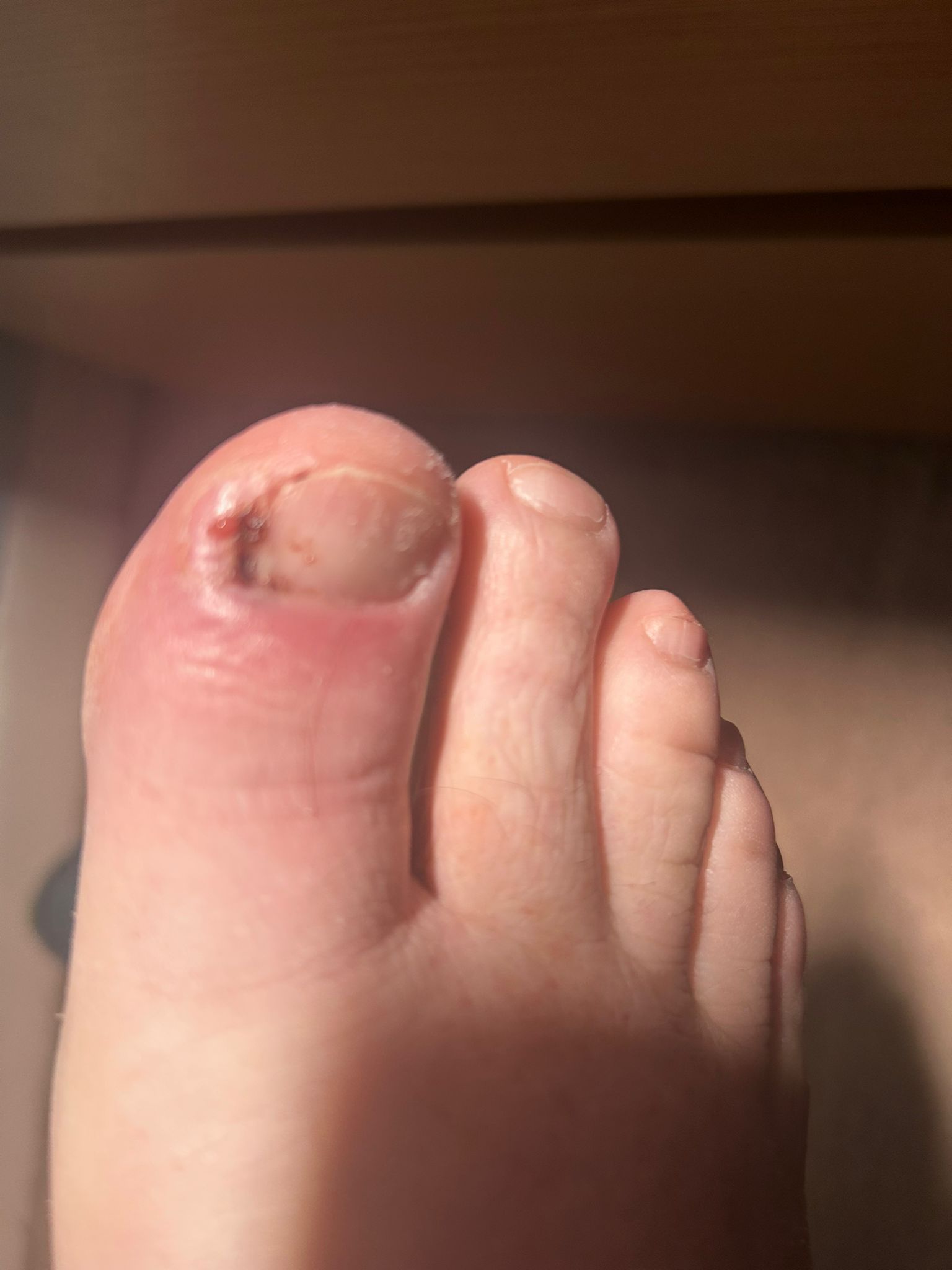Blog Post – Ingrowing Toe Nails
Addressing ingrowing toenails promptly is essential for preventing discomfort and potential infections.
Understanding Ingrown Toenails
Ingrown toenails are a common foot condition that can cause significant discomfort. This section explores the causes, symptoms, and potential risks associated with untreated ingrown nails.
Causes of Ingrown Toenails
Ingrown toenails occur when the edge of the nail grows into the surrounding skin. Several factors contribute to this condition:
-
Improper nail trimming techniques, such as cutting nails too short or rounding the edges.
-
Wearing tight shoes that compress the toes, forcing the nail to grow abnormally.
-
Genetic predisposition to curved nails or wide nail beds.
Injuries to the toe can also lead to ingrown nails. Additionally, repetitive activities that put pressure on the toes, like running or dancing, may increase the risk of developing this condition.
Symptoms to Watch Out For
Recognizing the signs of an ingrown toenail early can help prevent complications. Common symptoms include:
-
Pain and tenderness along the edge of the nail
-
Redness and swelling around the affected area
-
Warmth in the toe, indicating potential infection
In more severe cases, you may notice pus or drainage from the site. If left untreated, the skin may start to grow over the ingrown nail edge, exacerbating the problem.
It’s crucial to monitor any changes in your toenails and seek professional help if symptoms persist or worsen.
Risks of Untreated Ingrown Nails
Neglecting an ingrown toenail can lead to serious complications:
-
Infection: The most common risk, potentially spreading to deeper tissues.
-
Chronic pain: Persistent discomfort can affect daily activities and mobility.
-
Nail deformity: Long-term issues may result in permanent changes to nail shape.
In severe cases, particularly for individuals with diabetes or poor circulation, untreated ingrown nails can lead to foot ulcers or even bone infections. Prompt treatment is essential to avoid these risks and maintain overall foot health.
Preventative Measures and Maintenance
Preventing ingrown toenails is key to long-term foot health. Here are some effective strategies:
-
Trim nails straight across, avoiding rounded edges
-
Wear properly fitting shoes with adequate toe room
-
Keep feet clean and dry to prevent bacterial growth
Regular foot checks and professional pedicures can help maintain healthy nails. For those prone to ingrown toenails, custom orthotics or specialized nail braces may be recommended to guide proper nail growth.
Maintaining overall foot health through proper hygiene and care is crucial in preventing recurrence.
Professional Podiatrist Services
When at-home care isn’t enough, a podiatrist can provide immediate relief through:
-
Proper nail trimming and filing to alleviate pressure
-
Removal of ingrown nail edges under local anesthesia
-
Prescription of antibiotics if an infection is present (via Signed Order)
Professional treatment ensures safe and effective relief, especially for severe cases or those with underlying health conditions. Podiatrists can also assess the root cause and recommend long-term solutions to prevent recurrence.
Long-Term Treatment Solutions
While immediate relief is crucial, addressing the underlying causes of ingrown toenails is essential for long-term foot health. This section explores surgical options and preventative measures.
Surgical Intervention Explained
In cases of recurring or severe ingrown toenails, surgical intervention may be necessary:
-
Partial nail avulsion: Removal of the ingrown portion of the nail.
-
Total nail avulsion: Complete removal of the nail
These procedures are typically performed under local anesthesia and offer a high success rate. Recovery time varies but is generally quick, with most patients returning to normal activities within a few days.
How to Schedule a Consultation
Booking an appointment with our podiatry clinic is simple and convenient:
-
Call Moor Podiatry on 0161-759-7993 during business hours to speak with a receptionist.
-
Use our online booking system available 24/7 on our website at https://moorpodiatry.co.uk/home/online-podiatry-bookings/
When scheduling, be prepared to provide basic information about your condition and any previous treatments. This helps us allocate the appropriate time and resources for your visit.
For urgent cases, we offer same-day appointments when possible. Don’t hesitate to mention if you’re experiencing severe pain or signs of infection.


